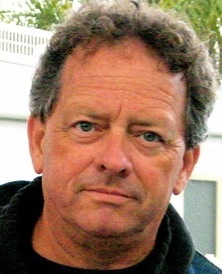Before We Begin
We don't often talk about current events in the news here but what happened at Sandy Hook Elementary School in Newtown, Connecticut on Friday morning was unspeakable. The nation has been understandably fixated on this event since it happened, and yet no one can really express the range of feelings that are triggered by what happened there.
All of us are friends, aunts, uncles, siblings, parents or grandparents of small children, and this hits very close to home. Tragedies such as this one are so random, so horrific, and so inexplicable that we cannot help but to empathize deeply with the victims. After all, they could just as easily have been us and our children. At times like this we cannot help ourselves, nor should we try. It is right to grieve with the families of the children, the school faculty and staff, and the first responders, all of whom have the impossible task of coping with this unspeakable evil.
Wild New World
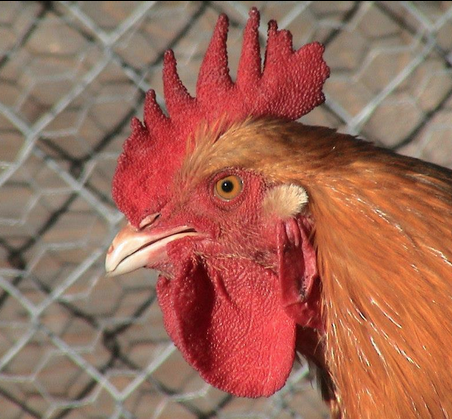
A couple of weeks ago Peggy picked up a book at the library. Neither of us had taken time to read it until this morning, when we were sitting out by the chicken coop, watching the chickens with our morning coffee. On my way out the book caught my eye, and I took it along. We sat there as we often do, enjoying the antics of Rooster Cogburn and his harem, and Peggy opened the book to somewhere in the middle and began to read. We have not had time to study the book in depth yet, but I suspect that this is not the only time you will hear about it from us.
  The book is Finding Your Way in a Wild New World: Reclaim Your True Nature to Create the Life You Want
The book is Finding Your Way in a Wild New World: Reclaim Your True Nature to Create the Life You Want by Martha Beck. by Martha Beck.
I am really excited about this book. It weaves together many concepts that we have talked about here in the past in ways that are new to me. I sense in it a practicality that is often missing in books about creativity and conscious living. But before we get into a few high points from the book, it's time for a little background on why it struck me so.
As you know, Peggy and I are deep into a dream that we have shared for most of the time we have known each other. That dream is our vision for a place where we can fully express our creativity and engage like minded creators to join us there. To this end we bought our place and began a construction project to create the space and facilities to do just that. We named the place and the project Windhook. And as you also probably know, the construction project ran into the ditch in the crash of 2008, leaving us with the architectural plan, county approvals, grading, utilities and concrete foundations in place, but no money to raise walls and finish the work. For four and a half years now, the construction site has lain dormant and sleeping. The vision has languished in mothballs. We have been in somewhat of a state of paralysis, not seeing any path forward.
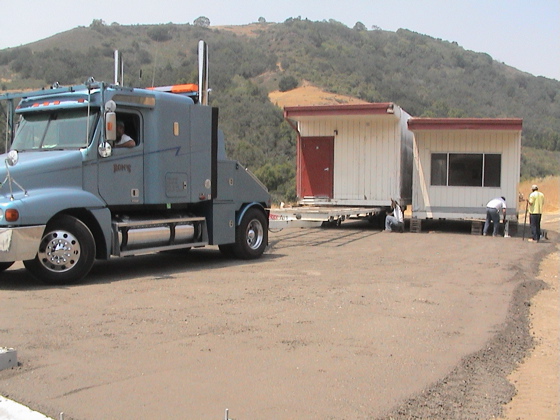
But in that time we have done several things to keep moving forward. We acquired a 960 square foot modular classroom from a local school district for the cost of moving it. We have transformed that building into an art studio, and have been able to make a functional space for us to spend our time and energies at Windhook sheltered from the elements. We have taken the time to engage the local art community and establish a wonderful network of relationships here. We have talked
many times about the Phantom Project here, and that is a direct outgrowth of our work with the local art community. We have also participated in business development workshops and engaged our considerable collective experience in the business world to develop robust business, marketing, and development plans for the operation of Windhook as an artists' retreat center. We have thought carefully and deliberately about our options for how we might find the money we need to complete construction. But none of these efforts have yet materialized that cash.
And the sprawling foundation laying silent and grey in the heart of Windhook has been an emotional challenge, especially for me. As the years have passed I have on many occasions been overwhelmed with doubts and despair for our dream, and the massive slab with it's galvanized bolts and wrapped pipe stubs sticking up has stood as a silent indictment. Peggy is far more eventempered than me, and is blessed with an unwavering optimism and cheer that after 12 years together still astounds me. She has been the rock of optimism and peace that has balanced my mercurial swings.

Recently I turned sixtyone. This hit me like a freight train. Suddenly it occurred to me that I was less than a decade from 70. My productive and energetic years will someday begin to diminish. I do not see evidence of that in my health and vitality now. I feel good and have no health problems. I can climb the steep hill behind our building site easily, and feel like I could go forever. My mind and body are strong. But I recently spent a decade and a half watching my parents steadily lose their vigor, and helping them through their end of life transitions. I look around me and feel as if I am defying gravity. I know that the realities of age and time will catch me someday, and for many this process comes rapidly. This all sounds a bit depressing and fatalistic, I know, but that is how it hit me. Suddenly, for the first time in my life, I came face to face with my own inevitable mortality. And it threatened my dreams and my image of myself and what I expect to accomplish in my life in very grim terms. For several months now, this has been a storm raging inside me. And all the while, the stark grey foundation slab lay there. Seeing it every day felt more than hopeless. It was painful.
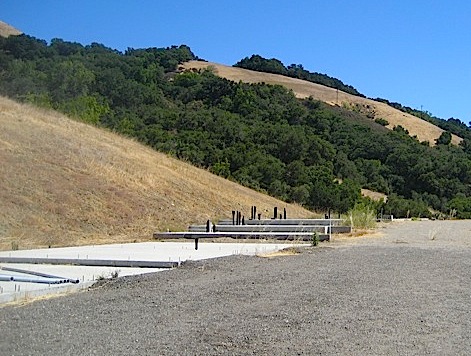
I feel like I should apologize to you for the stark and dreary tone of the paragraph I just subjected you to. It's not easy to strip naked and reveal such things. It's not easy to witness them either. I would not have done so if this were the sum of it. But a couple of developments have happened recently that make this story important for you to understand in background. First, we have begun a conversation with Steven Crocker and John Fry of CDM Real Estate Company, a real estate construction, development, and management company in Watsonville, California. I have known Steven since high school and he has always been one of those rare friends with whom I can always pick up even when we have not been in contact for years. CDM is a company that develops a wide range of projects, and Steven and his partner John Fry are a remarkable wealth of information about the challenges we face. Recently Steven came to visit us and took a copy of our business plan home to discuss with John. We have begun conversations with them, and one of the first things John said was that the business plan was solid and had everything in it that it should, but that it did not capture the heart of what we are all about. He could see the heart of our vision in our conversations but felt that the business plan was missing that. John hit the nail on the head.
There is a reason that the business plan left him flat, but I could not see it clearly until we began reading Martha Beck today. The business plan is not about our vision. It's about our best logical projections about how to rescue the vision by making it look good to potential investors. The reason that we have not pitched that business plan to potential investors has eluded us for a couple of years now. It was ready, and could easily have been presented, but for some reason, we just have not been able to bring ourselves to do it. Now I see why. Windhook is not first a business. To strap it to a set of financial expectations and requirements is something that we shy away from whenever we approach it. We have often said that what we really wanted was to just invite people to come and work and stay and engage with us in the creative process. We have always known that running workshops for money was a mechanism, and not core to the vision. Running workshops would be fun, and we want to do so. But strapping ourselves to a grueling schedule of events to satisfy a commitment to investors is something we have shied away from every time we have come right up to it. And that sixtyfirst birthday melt down made the prospect of a long term commitment to an aggressive business partnership even more ominous.
This is where the light came on today as we skipped around in Martha Becks book, skimming highlights and watching the chickens flirt with that rooster. The book is about something Beck calls "magic". It describes four technologies in the magician's toolkit: wordlessness, oneness, imagination, and forming. We might write more about these in future installments, but for now I will summarize how they come to bear on the story I am telling you now.
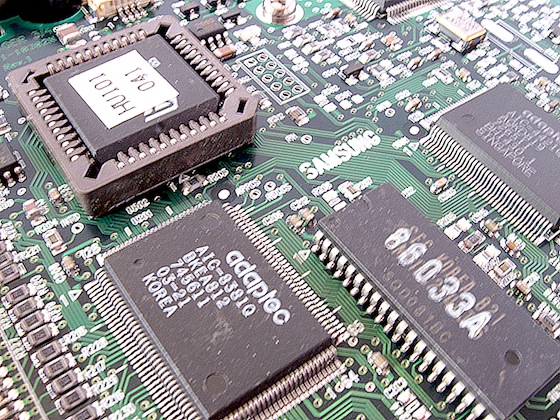
Beck's premise is that the twentyfirst century has propelled us into a wild new world in which Moore's Law applies to everything, not just to computer hardware, and in fact is too conservative to capture the reality. If you are not familiar with Moore's Law, Wikipedia introduces it like this:
"Moore's law is the observation that over the history of computing hardware, the number of transistors on integrated circuits doubles approximately every two years.
...
"The capabilities of many digital electronic devices are strongly linked to Moore's law: processing speed, memory capacity, sensors and even the number and size of pixels in digital cameras. All of these are improving at (roughly) exponential rates as well (see Other formulations and similar laws). This exponential improvement has dramatically enhanced the impact of digital electronics in nearly every segment of the world economy. Moore's law describes a driving force of technological and social change in the late 20th and early 21st centuries."
Beck proposes that the entire social stability of our world is impacted profoundly by this explosive rate of change, which is systematically dismantling everything we have known and trusted for stability. Every aspect of modern life is in a state of increasingly turbulent flux and upheaval, and she proposes that the ancient systems of intuition and perception are the only hope we have for coping with this roiling current of change. The four technologies are her articulation of how intuition can be honed and sharpened to live effectively in peace and confidence and power in such an environment.
The first technology is wordlessness. This means bringing the logical mind to stillness. I have written about this noise of the logical mind as "monkeybrain" in past installments. It's that tendency to jump to limiting and premature conclusions about what's happening and about what's possible, and then to obsess over projections about what those conclusions must surely mean. It's what drove us to "solve" the financial collapse of Windhook with a business plan for bringing in investors. It's what put me in a tailspin at turning sixtyone. Wordlessness is turning off monkeybrain and listening to this moment. Wordlessness brings me instantly to the realization that our vision for Windhook is sound, and not threatened by finances, or dependent on the viability of a business plan, or the presence or absence of investors. We are here, we are connected solidly to our creative community, and are sharing Windhook with that community. Wordlessness is the field within which intuition hears profound insights not available against the noise and busyness of monkeybrain's projections.

You may be wondering how to silence monkeybrain at this point. We have all had the experience of tossing and turning at night when we want to sleep because monkeybrain insists on rehashing the events of the day, and our worries for tomorrow. It is really quite simple. When you find monkeybrain swinging from the chandeliers of your mind, refusing to come down and behave, simply turn your full attention to watching what it is doing. Amazingly this shuts down the monkeybrain instantly. Try it now. First, try to stop thinking by an act of will. Of course, you cannot. When you try, your monkeybrain is the one trying. When it stops a thought, it immediately initiates a new thought: "Am I thinking? Yes, I am thinking about whether I am thinking!" This is an endless loop and the monkeymind will engage it to stay active as long as you insist on it. But if you simply stop and watch the monkeybrain doing this, it stops and you find your mind suddenly and mysteriously quiet until monkeybrain starts to analyze what has happened. With practice, your mind can remain still for longer and longer periods. Soon the monkeymind gives up. This is when the field is open for you to engage the other technologies of magic.
Oneness comes forward out of the stillness of wordlessness. Oneness is what makes clear the connection that we have to others. Oneness is in fact at the heart of the Windhook vision—interacting with other creative people is what nurtures and sharpens creativity. It is vital to art! I have written briefly about how I first came to this realization over a decade ago here. Oneness is the connection to everything. It is really the energy that makes anything truly significant. Oneness is the common energy that expresses itself in all of us. But it expresses itself uniquely in each of us and in ways that it has not experienced in anyone or anything else.
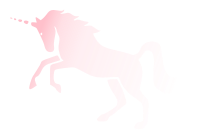
Beck's technology of imagination is not the sort of fantasy in which you might conjure up an invisible pink unicorn. Rather, it is listening to possibilities that come out of dwelling in wordless stillness, out of earshot of the monkeymind. Imagination is being attuned to the potentials and insights of intuition. It is the working of the aspect of human consciousness that processes millions of inputs instantaneously and simultaneously. Imagination is the process by which the intuitive mind forms intentions and expectations out of the field of possibilities. Imagination is not a process of creating your own set of wishes and fantasies about what you would like to happen. It's more about tuning into what that oneness which we all express wishes to reveal individually through you. This is wiser and bigger than any pink unicorn fantasy that monkeybrain can drum up. This imagination does not speak up in the presence of monkeybrain. It is an inherent trait of all the technology of magic that it will not function in the presence of monkeybrain. Magic simply shuts down when we give space to the monkeybrain. Sending the monkeybrain away and making space for the other technologies to work is the purpose of wordlessness.
Beck's final technology is forming. Forming is where all the other technologies come together. Forming is where reality manifests imagination. Forming is play. It is relaxing and knowing that it's all good, and that what the imagination expresses will take care of itself. If you feel the inclination to work at forming what imagination has created, you can be sure that it is monkeybrain butting in. Observe it, thank it for trying to help, and send it away, since there is no place for working hard to make things happen anywhere in magic.
Well, that's it in a nutsell. I hope I have begun to pique your interest in this book. What I have written here is my own perspective on what Martha Beck has written there. It includes my own integration of what she says with what I already understand from my own work in consciousness and living in the present. I am new to her work as of today (Saturday) and will spend more time with it. But in this very short time, what I have read has completely reset my thinking to begin listening to my own intuition and imagination about how to engage Windhook. I am inspired and energized. We shall see how this magical journey expresses itself. And I promise to bring you along for the ride.
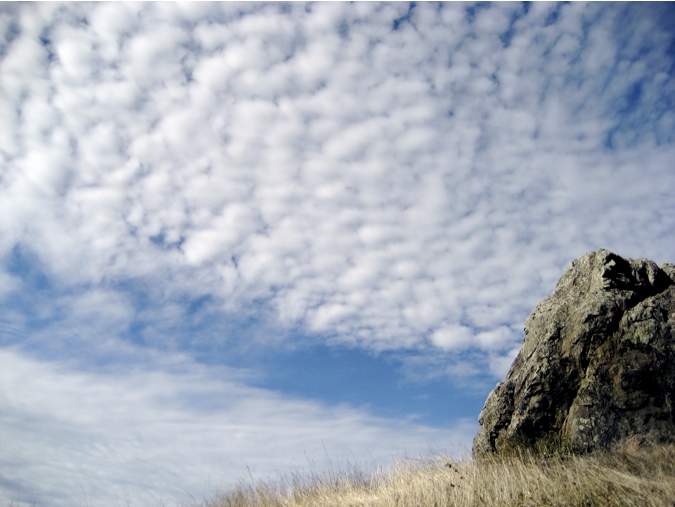
Our monthly radio show: Designing a Creative Life
|











